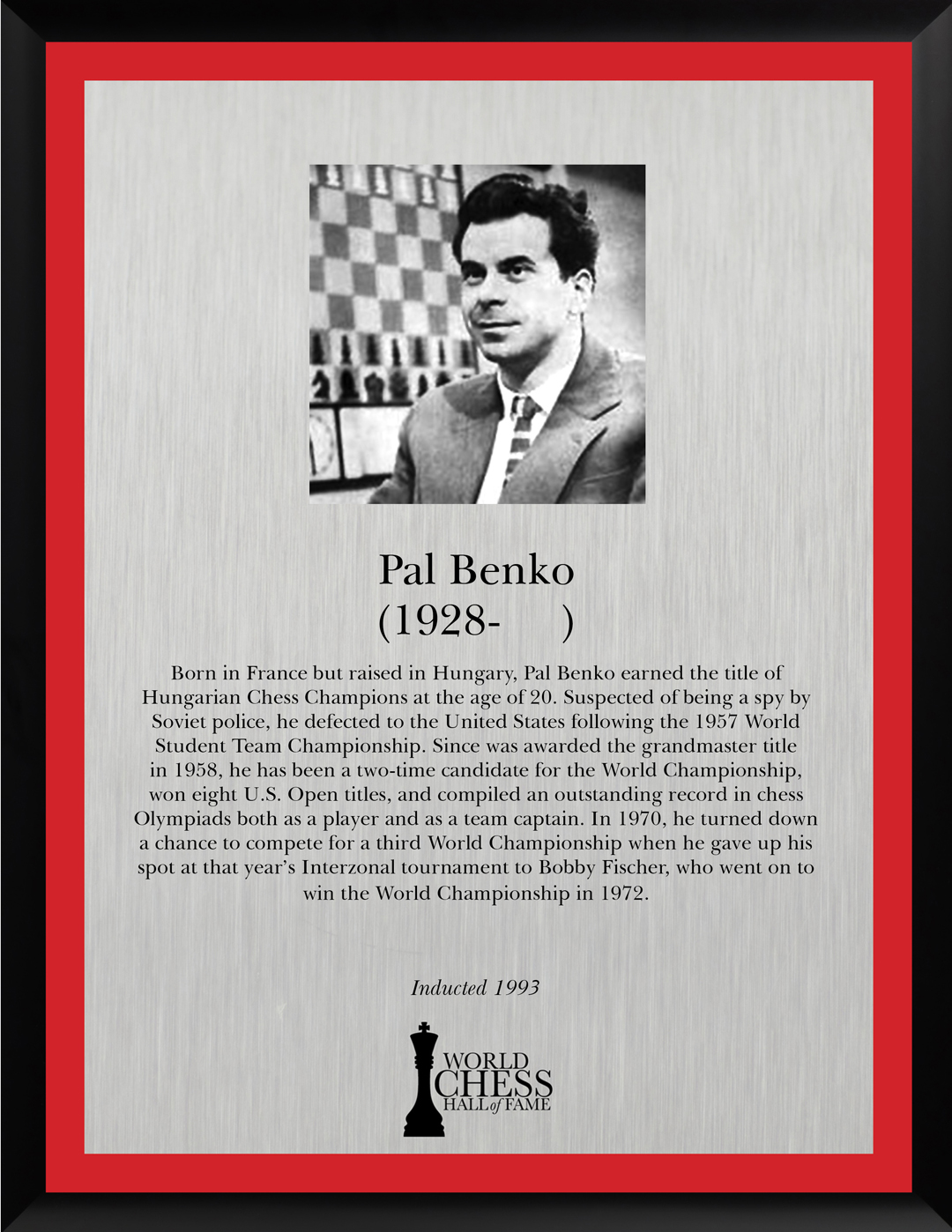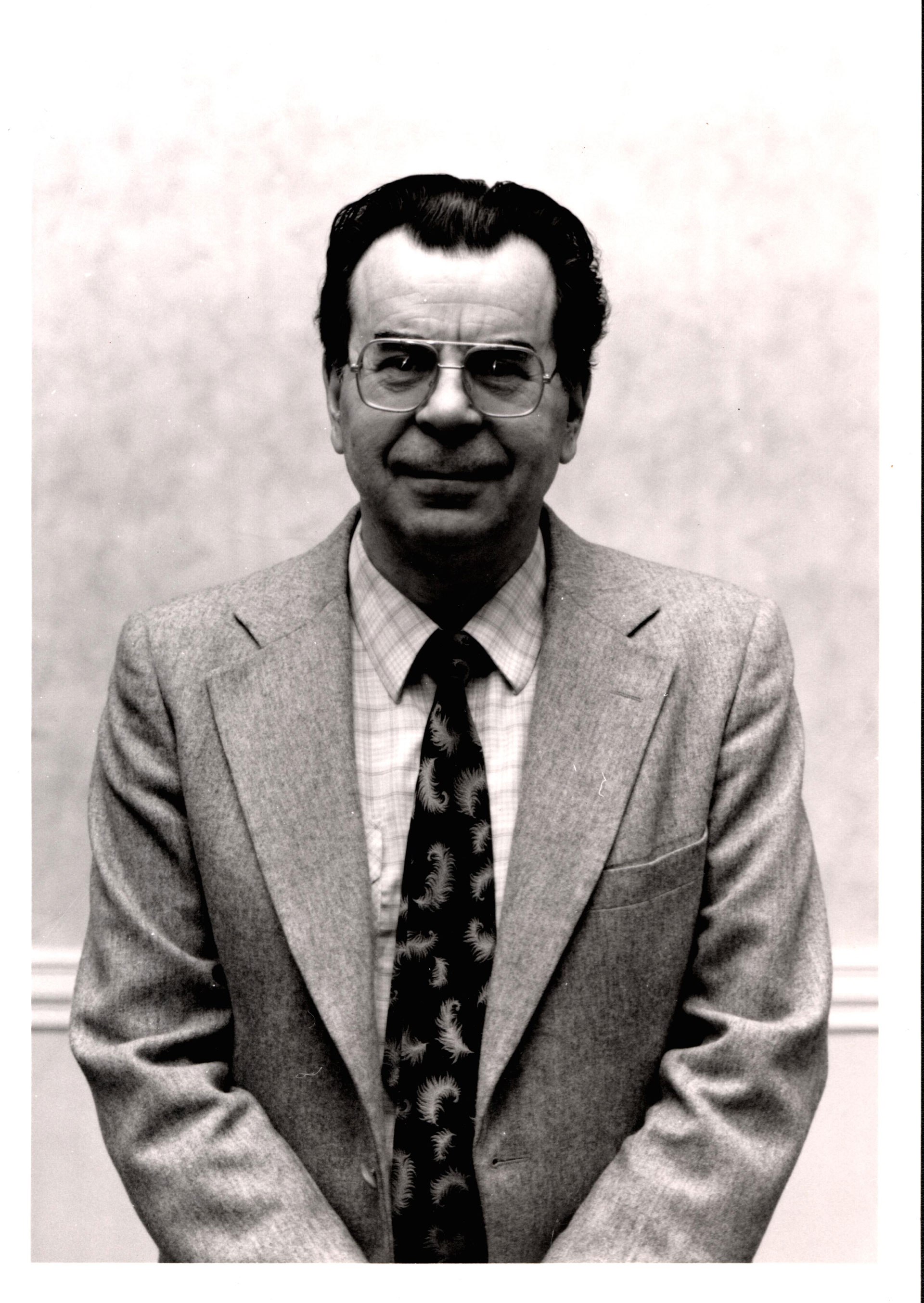 (1928-2019)
(1928-2019)
U.S. Chess
Hall of Fame
Inducted 1993
Born in France but raised in Hungary, Pal Benko earned the title of Hungarian Chess Champions at the age of 20. Suspected of being a spy by Soviet police, he defected to the United States following the 1957 World Student Team Championship. Since was awarded the grandmaster title in 1958, he has been a two-time candidate for the World Championship, won eight U.S. Open titles, and compiled an outstanding record in chess Olympiads both as a player and as a team captain. In 1970, he turned down a chance to compete for a third World Championship when he gave up his spot at that year’s Interzonal tournament to Bobby Fischer, who went on to win the World Championship in 1972.
The Benko Gambit and Benko’s Opening, both of which he pioneered, are named for him, though he is also considered an authority on the endgame and a composer of chess problems and endgame studies. FIDE named Benko an International Master of Chess Composition, and his popular Chess Life column, “Endgame Lab,” has been a staple of the magazine since the column’s inception in January 1981. In addition to his work for Chess Life, Benko has authored or contributed to several books, including 1991’s Winning with Chess Psychology and a 2003 revision of Reuben Fine’s classic Basic Chess Endings.



